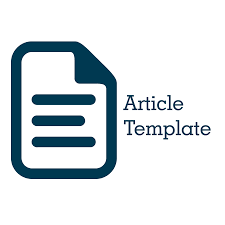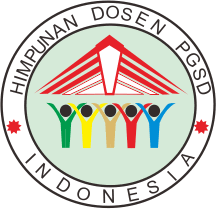Inovasi kurikulum dalam meningkatkan kualitas pembelajaran di era digital pada sekolah dasar
Abstract
The development of information and communication technology in the digital era, especially in elementary schools, has brought significant changes to the world of education. Curriculum innovation is crucial to adapt learning to the needs of the 21st century, including mastery of technology, critical thinking skills, and collaboration. This article discusses the challenges faced by Indonesian education in adapting the digital curriculum, the positive and negative impacts of using technology in learning, and efforts that can be made to improve the quality of education in elementary schools. This study uses a literature study method by analyzing various related sources. The results of the discussion show the importance of developing technology infrastructure, teacher training, and the involvement of all stakeholders in supporting adaptive and innovative synchronization transformation in the digital era.
Keywords
Full Text:
PDFReferences
[1] I. Budiana, “Inovasi dalam Pengembangan Kurikulum Pendidikan,” vol. 2, no. 2, pp. 433–450, 2024.
[2] Muhammad Muttaqin, “Konsep Kurikulum Pendidikan Islam,” TAUJIH J. Pendidik. Islam, vol. 3, no. 1, pp. 1–16, 2021, doi: 10.53649/taujih.v3i1.88.
[3] I. Kartika, Machmud, Muhammad, Sih Hayuning Tyas Hestutami, and M Jahidin, “Inovasi dalam Pengembangan Kurikulum: Tantangan dan Peluang di Era Digital,” Reslaj Relig. Educ. Soc. Laa Roiba J., vol. 6, no. 5, pp. 2261–2271, 2024, doi: 10.47467/reslaj.v6i5.1224.
[4] S. Sucipto, M. Sukri, Y. E. Patras, and L. Novita, “Tantangan Implementasi Kurikulum Merdeka di Sekolah Dasar: Systematic Literature Review,” Kalam Cendekia J. Ilm. Kependidikan, vol. 12, no. 1, 2024, doi: 10.20961/jkc.v12i1.84353.
[5] P. Alfiah, A. Rahma, and V. N. Mufidah, “Implementasi Teknologi Digital Dalam Pengelolaan Kelas Pada Pembelajaran Pendidikan Agama Islam,” vol. 3, no. 4, pp. 110–120, 2025.
[6] S. E. Atmojo and A. K. Wardana, “Pemanfaatan Teknologi Digital Sebagai Strategi Efektif Meningkatkan Literasi Sains di Sekolah Dasar,” vol. 8, pp. 167–175, 2025.
[7] N. R. Azura, A. R. Sugma, and M. Habib, “Pengaruh media pembelajaran vidio animasi terhadap hasil belajar IPA siswa di kelas VI SD,” pp. 142–150.
[8] D. B. Maritasari et al., “Implementasi pengembangan media digital kompetensi Pelajar Pancasila di Sekolah Dasar untuk meningkatkan,” vol. 9, pp. 1066–1074, 2025.
[9] E. F. Nurjadid, “Analisis Implementasi Ideologi Kurikulum Pembelajaran Pendidikan Agama Islam terhadap Perkembangan Kognitif , Afektif , dan Psikomotor Peserta Didik,” vol. 5, pp. 1054–1065, 2025.
[10] T. H. Belajar, “EFEKTIVITAS MODEL COOPERATIVE LEARNING TEAM GAMES,” vol. 10, no. 2, pp. 1625–1632, 2025.
[11] M. J. Putra, C. Caroline, and S. W. Ram, “Jurnal Ilmiah Edukatif Pengaruh Kebijakan Pemerintah terhadap Keberhasilan Digitalisasi Pendidikan di Negara Berkembang”.
[12] S. Ray, J. Das, R. Pande, and A. Nithya, “Swati Ray 1 , Joyati Das 2* , Ranjana Pande 3 , and A. Nithya 2,” no. 1, pp. 195–222, 2025, doi: 10.1201/9781032622408-13.
[13] Nurhayati and D. Mulyanti, “Strategi Manajemen Pendidikan di Era Digital: Optimalisasi Infrastruktur, SDM, dan Pembelajaran Berbasis Teknologi,” J. Pelita Nusant., vol. 2, no. 4, pp. 376–383, Apr. 2025, doi: 10.59996/jurnalpelitanusantara.v2i4.698.
[14] R. A. Lesasunanda and A. Malik, “Peningkatan Kualitas Guru Melalui Literasi Digital di MAN 1 Sumbawa Barat,” J. Ilm. Profesi Pendidik., vol. 9, no. 3, pp. 1904–1915, Aug. 2024, doi: 10.29303/jipp.v9i3.2365.
[15] S. Nur Afifah et al., “Literasi digital guru SD Negeri dan SD Swasta: perceived competency dan implementasi.”
Refbacks
- There are currently no refbacks.



